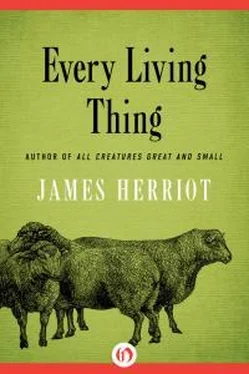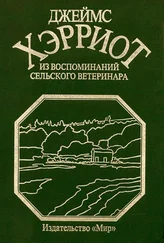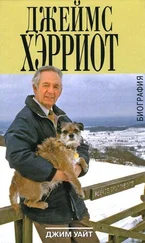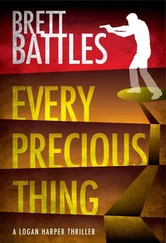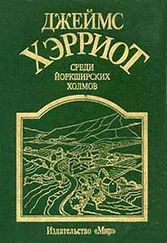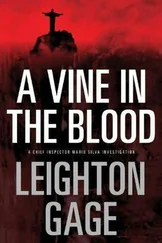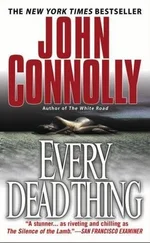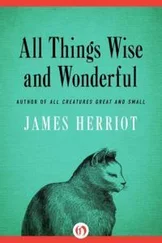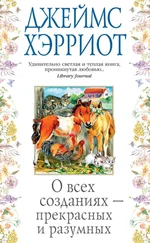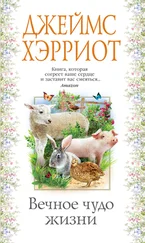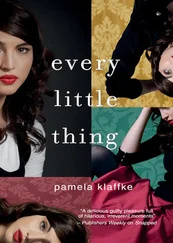Джеймс Хэрриот - Every Living Thing
Здесь есть возможность читать онлайн «Джеймс Хэрриот - Every Living Thing» весь текст электронной книги совершенно бесплатно (целиком полную версию без сокращений). В некоторых случаях можно слушать аудио, скачать через торрент в формате fb2 и присутствует краткое содержание. Год выпуска: 2011, ISBN: 2011, Издательство: Open Road Integrated Media LLC, Жанр: Домашние животные, на английском языке. Описание произведения, (предисловие) а так же отзывы посетителей доступны на портале библиотеки ЛибКат.
- Название:Every Living Thing
- Автор:
- Издательство:Open Road Integrated Media LLC
- Жанр:
- Год:2011
- ISBN:9781453227947
- Рейтинг книги:5 / 5. Голосов: 1
-
Избранное:Добавить в избранное
- Отзывы:
-
Ваша оценка:
- 100
- 1
- 2
- 3
- 4
- 5
Every Living Thing: краткое содержание, описание и аннотация
Предлагаем к чтению аннотацию, описание, краткое содержание или предисловие (зависит от того, что написал сам автор книги «Every Living Thing»). Если вы не нашли необходимую информацию о книге — напишите в комментариях, мы постараемся отыскать её.
Every Living Thing — читать онлайн бесплатно полную книгу (весь текст) целиком
Ниже представлен текст книги, разбитый по страницам. Система сохранения места последней прочитанной страницы, позволяет с удобством читать онлайн бесплатно книгу «Every Living Thing», без необходимости каждый раз заново искать на чём Вы остановились. Поставьте закладку, и сможете в любой момент перейти на страницу, на которой закончили чтение.
Интервал:
Закладка:
“He’s a different dog, Rupe,” I said. “He looks as though he’s had some good food at last, and he’s happy, too.”
“Aye, by gum he did eat for the first few days and he’s settled down grand at home, too. My missus thinks the world of ’im.”
I noticed that as he spoke the tiny animal’s gaze was fixed unwaveringly on his new master. He was a shaggy little thing of baffling breeding, but his face had a scruffy appeal that was undeniably attractive and his eyes shone with devotion. Titch had found somebody else to love and this time I knew he wasn’t going to be let down. Rupe Nellist was not a demonstrative man, but the way he looked at his new pet and gently stroked his head made it very clear that there was something in the little creature to which he responded deeply.
I took the opportunity to X-ray the lame leg and the picture was as I expected.
“It’s too late to set the broken bone in plaster, Rupe,” I said. “The only hope would be to plate the leg—bring the ends of the bone together and hold them there for a few weeks with a metal plate, and even then I couldn’t guarantee he’d ever be sound. These things are best done at the time of the injury.”
“Yes, I understand that, but, you know, I’d give a lot to see me little feller goin’ around on all four legs. He never puts that bad leg to the ground, and it upsets me. Think about it, and I’ll do whatever you advise.”
Plating fractures was going deeper into orthopaedic surgery than I had ever done, but two things motivated me to have a go. Firstly, Rupe Nellist had a steadfast faith in my ability and secondly, Calum Buchanan was determined to drag me into the modern world of small-animal practice.
There was another thing, too. I kept hearing from people who lived in Hargrove about Rupe’s extraordinary affection for his new dog. It seemed that he took him everywhere with him, socially and in his work, showing him off proudly as if he was of the highest pedigree instead of, as most people would say, just a little mongrel. Rupe’s business had continued to prosper with the opening of another large shop and he was active, too, on the town council and in local government. It caused some surprised comment that he actually took Titch into the council meetings with him, and had he not been a formidable personality, growing in power, he’d never have got away with it. There was no doubt about it, I’d have to try to fix that leg.
I found myself in a very familiar situation—having to perform an operation that I had never done, never even seen. I had received a good scientific education at the veterinary college, but I had qualified at a time when a great wave of new drugs and procedures was sweeping over the profession and I was breathlessly trying to keep up with it all. All I could do was read up on the new things in our professional journals, and this had enabled me to do a lot of bovine surgery such as Caesarean operations and rumenotomies, which had never been performed in our district before. In my modest way, I was a pioneer in that field.
However, these things had been forced upon me, an unavoidable part of my life as a large-animal practitioner. It had been only too easy to side-step the small-animal surgery by sending our problem cases to the brilliant Granville Bennett, but it was time to face up to the fact that dog and cat work was going to occupy more and more of our lives. This was another revolution.
Calum was an enthusiastic advocate of the new ideas. He would tackle any kind of surgery with courage and determination, and he was enchanted at the opportunity to repair Titch’s leg. And, unlike me, he had seen many of these orthopaedic operations done. The modern veterinary colleges had fine clinics where all the latest procedures were carried out—something undreamed of in my time.
We had to get in some new instruments and equipment but we were ready to start by the following Sunday morning. We picked that day because the practice would be quiet and we’d have more time.
I found, as with all new operations, that the actuality was ten times more difficult and frightening than I had expected from my reading. I seemed to spend a year, head to head with Calum, bending over Titch’s sleeping form. Digging our way through the muscles down to the damaged bone, removing the partial callus and a seemingly endless mass of fibrous tissue, tying off the spurting blood vessels, freshening the ends of the bone, drilling, screwing in the plates that would hold the broken ends together. I was sweating and exhausted by the time the last skin suture was inserted and all that could be seen was the line of stitches. Thinking of what lay underneath, I breathed a silent prayer.
Over the next few weeks, Rupe Nellist kept bringing Titch in for examination. The wound had healed well with no reaction, but there was no attempt by the little dog to put the leg to the ground.
After two months we removed the plate. The bone had united beautifully, but Titch was still a three-legged dog.
“Doesn’t he ever try to touch the ground with it?” I asked.
Rupe shook his head. “Nay, he’s as you see ’im. Never any different. Maybe he’s been lame so long that he just holds the leg up out of habit?”
“Could be, but it’s disappointing.”
“Never mind, Mr. Herriot. You chaps have done your best and I’m grateful. And the little feller’s grand in every other way.”
As he took his leave with his pet limping by his side, Calum turned to me with a wry smile. “Ah, well, some you lose.”
It was several months later when Calum read out a piece in the Darrowby and Houlton Times.
“Listen to this. ‘On Saturday there will be a civic reception for Rupert Nellist, newly elected Mayor of Hargrove, followed by an appearance outside the Town Hall.’ ”
“Well, good old Rupe,” I said. “He deserves it after all he’s done for the town. I like that man.”
Calum nodded. “So do I. And I wouldn’t mind seeing him in his moment of glory. Do you think we could sneak through to Hargrove for half an hour?”
I looked at him thoughtfully. “That would be nice, wouldn’t it? And there’s nothing much fixed for Saturday. I’ll speak to Siegfried—I’m sure he’ll hold the fort for us.”
Saturday morning found Calum and me among the crowd standing in bright sunshine outside Hargrove Town Hall. At the top of the steps, several large pots of flowers had been arranged on either side of the big doors and the multicoloured blooms added to the festive air and the feeling of expectancy. A group of BBC men stood with their television cameras at the ready.
We hadn’t long to wait. The doors swung open, and as Rupe emerged wearing his chain of office with the Lady Mayoress by his side, a swelling cheer arose from the crowd. His popularity was reflected in the smiling faces and waving arms around us, then the sound increased suddenly in volume as Titch trotted out from behind the master. Everybody knew about Rupe’s relationship with his dog.
However, the sound was as nothing compared to the great roar of laughter when Titch strolled to the front, cocked his leg, and relieved himself against one of the flowerpots, a gesture which would make him famous among TV audiences throughout the country.
Everybody was still laughing as the little procession came down the steps and began to pass through the crowd, who opened up to make an avenue down which the Mayor and Mayoress walked with Titch in the rear.
It was a happy sight but Calum and I had eyes for only one thing.
Calum nudged me in the ribs. “Do you see what I see?”
“I do,” I breathed. “I certainly do.”
“He’s sound. On four legs. Absolutely no signs of a limp.”
“Yes…great…marvellous!” The feeling of triumph made the sun shine more brightly.
Читать дальшеИнтервал:
Закладка:
Похожие книги на «Every Living Thing»
Представляем Вашему вниманию похожие книги на «Every Living Thing» списком для выбора. Мы отобрали схожую по названию и смыслу литературу в надежде предоставить читателям больше вариантов отыскать новые, интересные, ещё непрочитанные произведения.
Обсуждение, отзывы о книге «Every Living Thing» и просто собственные мнения читателей. Оставьте ваши комментарии, напишите, что Вы думаете о произведении, его смысле или главных героях. Укажите что конкретно понравилось, а что нет, и почему Вы так считаете.
